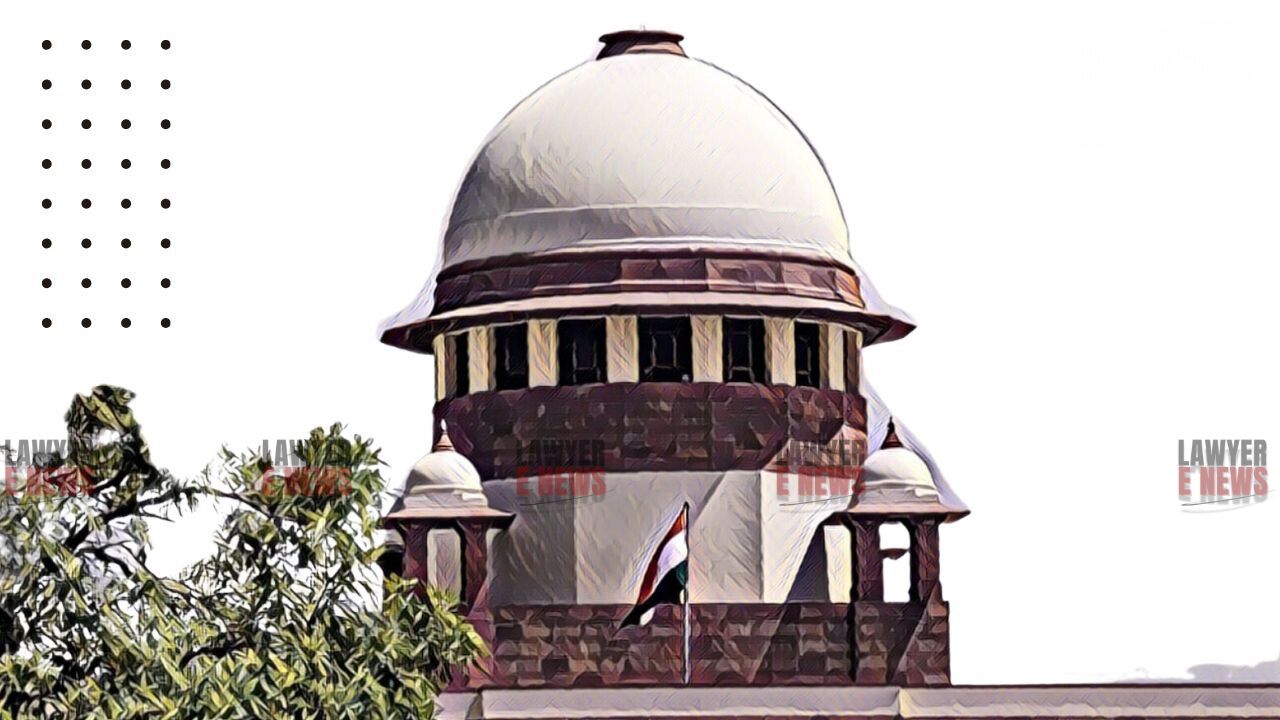-
by Admin
15 February 2026 5:35 AM



In a pivotal judgment delivered, the Supreme Court of India ruled that High Court judges, regardless of whether they are appointed from the Bar or promoted from the district judiciary, must enjoy uniform financial benefits. The bench, comprising Chief Justice D.Y. Chandrachud, and Justices J.B. Pardiwala and Manoj Misra, struck down a discriminatory practice excluding judges elevated from the district judiciary from subscribing to the General Provident Fund (GPF).
The Court held that such exclusion violates constitutional principles enshrined in Articles 14 and 217, and undermines judicial independence, which is part of the Constitution’s basic structure. The bench observed:
"Once appointed as judges of the High Court, their birthmarks stand obliterated, and any attempt to make a distinction based on their recruitment source would violate the Constitution."
This ruling upholds financial equality and strengthens the independence of the judiciary.
"Judicial Independence is Impossible Without Financial Independence": Supreme Court on Provident Fund Disparity
The petitioners in this case were High Court judges promoted from the district judiciary. They challenged a government communication dated December 13, 2022, which denied them the benefit of subscribing to the General Provident Fund (GPF). The government had argued that as district judges recruited after April 1, 2004, they were covered under the New Pension Scheme (NPS) and thus could not shift to the GPF upon their elevation to the High Court.
This practice effectively created two categories of High Court judges: those promoted from the district judiciary (excluded from GPF) and those appointed from the Bar (entitled to GPF). The petitioners claimed that this discriminatory treatment violated Articles 14 (equality before the law) and 217 (conditions of appointment and service of High Court judges) of the Constitution.
The petitioners also highlighted that such discrimination undermines the principle of judicial independence, as financial security is integral to the functioning of the judiciary.
The Supreme Court addressed the following core legal issues:
Is it constitutionally permissible to exclude High Court judges promoted from the district judiciary from subscribing to the GPF?
Does such exclusion violate Articles 14 and 217 of the Constitution?
What is the correct interpretation of Section 20 of the High Court Judges (Salaries and Conditions of Service) Act, 1954?
The Court noted that Articles 216 and 217 of the Constitution recognize High Court judges as a single constitutional class, irrespective of their recruitment source. Article 217(2) specifies the two sources of recruitment—district judiciary and the Bar—but does not envisage any distinction in their service conditions once appointed.
The Court emphasized: "High Court judges, once appointed, are constitutional officeholders with equal status, powers, and responsibilities. Differentiating them based on their prior service is impermissible and undermines their equality under the Constitution."
The Court reiterated that financial security is critical to judicial independence, which is a part of the Constitution’s basic structure. Citing prior judgments, the Court stressed:
"Judicial independence can only be achieved when judges enjoy financial independence, both during service and post-retirement. Any discrimination in financial benefits directly affects judicial independence."
The Court further noted that the salaries, allowances, and pensions of High Court judges are guaranteed by constitutional provisions (Articles 221, 202(3)(d), and 112(3)(d)) to ensure uniformity and to prevent any undue influence on judicial functioning.
Section 20 of the 1954 Act entitles High Court judges to subscribe to the GPF. The proviso to Section 20 allows judges to continue subscribing to the provident fund they were part of before their appointment as High Court judges if they held a pensionable post.
The Court clarified that this proviso is not restrictive but rather permissive—it enables continuity of benefits accrued under a prior provident fund but does not bar judges from accessing the GPF. The bench observed:
"The proviso to Section 20 cannot be used to deny GPF benefits to High Court judges promoted from the district judiciary, particularly when they were not subscribing to any provident fund under the NPS."
Citing prior judgments like P. Ramakrishnam Raju v. Union of India (2014) and Union of India v. Justice (Retd.) Raj Rahul Garg (2024), the Court affirmed that any classification of High Court judges based on recruitment source violates Article 14.
"Irrespective of the source from which judges are drawn, they must be treated equally in matters of salary, allowances, and pensions."
"A distinction between judges appointed from the Bar and the district judiciary would amount to unconstitutional discrimination."
The Supreme Court quashed the government’s discriminatory practice and issued the following directives:
The government was directed to open GPF accounts for all petitioners with effect from their date of appointment as High Court judges.
Contributions made under the New Pension Scheme (NPS) must be refunded to the petitioners within four weeks.
The government communication dated December 13, 2022, denying GPF benefits to judges promoted from the district judiciary, was declared unconstitutional and set aside.
The Court emphasized that these directions would apply uniformly to all similarly placed judges across India.
This judgment is a landmark in ensuring uniformity and equality in the financial benefits of High Court judges, irrespective of their recruitment source. By quashing discriminatory practices, the Supreme Court has reinforced the principles of judicial independence, equality, and financial security.
The ruling has significant implications for the Indian judiciary, setting a precedent for uniform service conditions and protecting the financial dignity of all constitutional officeholders.
Date of Decision: November 5, 2024
